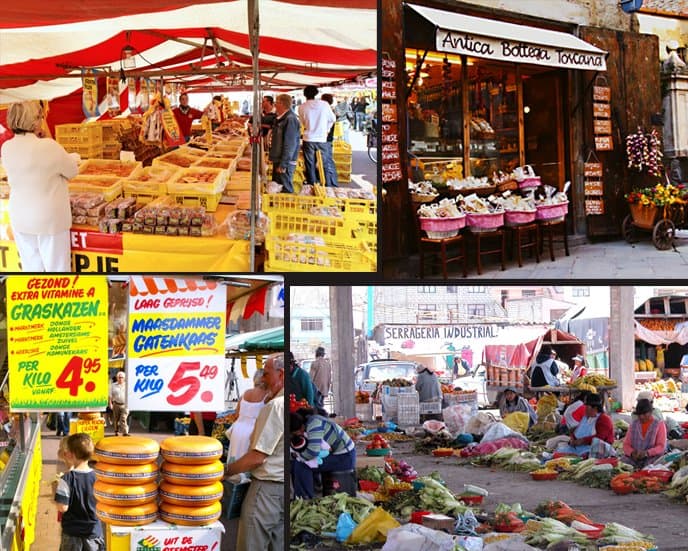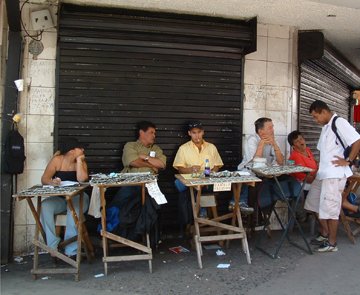I was sitting in the dentist’s chair yesterday and had just told my hygienist that I would not be able to get back in for another cleaning for well over a year because we were going overseas.
“Where are you going?” she asked.
I told her about our upcoming travels and she brightened.
“I’m planning a trip myself,” she said in a low voice. “I should probably tell work because I’ll need to leave. I keep telling patients about it, but I haven’t given my notice yet.”
Our conversation, of course, shifted to travel. She was 23 and felt that she hadn’t been to many places, despite having already visited Colombia, India and North America. What connected us most were the experiences we both enjoyed while travelling.
“I don’t know about you,” she said, “but I am easily bored while travelling. And I don’t like to be bored.”
I expected her to say that she needed constant stimulation and activities, but it turns out that what she meant was that a place needed to have certain qualities to please her. Like me, good food was very important to her, and she assigned greater value to interesting people than museums and national landmarks.

Markets and food shops hold endless fascination for me when travelling. Photos by ‘Jusben’ and ‘Clarita’ of morgueFile.
When I’m travelling, I am interested in the history of a place, but only because it has helped to shape the present culture and psyche of its people. I tend to prefer cultural museums over art museums and get little pleasure from visiting churches or looking at interesting buildings (unless I am with my father, who inevitably can explain why the building is architecturally significant from a structural point of view – that is endlessly fascinating).
What I do love about travel are sensory experiences. I can easily spend a day in a food market, sampling local delicacies, watching how the local people choose produce and bargain for things, discovering interesting new products and food items and chatting to the vendors. Good eating is very important to me when travelling (as my hygienist emphatically agreed). Similarly, we noted that we would walk hours to see a waterfall or other natural wonders. I love a good hike and checking out weird spiders, berries and mushrooms in a forest, or just riding a bike just outside the city centre.
On our most recent trip to tropical Queensland, we discovered the Green Ant. A staff member told us about them on our first night in Long Island, but they didn’t really get our attention until we went up into the bush on a walk. I pushed two thin tree branches apart to clear our path and felt a fine mist fall all over my face and upper body. It stung a bit yet smelled delicious, like a sweet green apple martini. Of course, it completely frightened me at the same time. I’d never been sprayed in the face by any animal and I had no idea what had just happened. It turns out that I had disrupted a nest and the defence mechanism of the ants is to bite and then spray the area with ascorbic acid (which is harmless and found in food). The Aboriginal people make tea out of these ants for medicinal benefits and apparently you can lick the ants to enjoy the benefits of the vitamin C. Luckily I wasn’t bitten by them, and this experience turned out to be one of my favourites of the trip because it was so tangible and I learned something new.
Philosophers debate about a term called qualia, which, in very simple terms, are the mental experiences of things that are perceived physically by the body, which differ from person to person. We may both be looking at the same red apple, but we will inevitably feel differently in its presence. You can’t describe qualia; they are very personal and must be experienced directly. Travel is also subjective. We each get something different out of it and we all like places and experiences for different reasons, if we like them at all.
I, for example, really enjoy all the people you meet when travelling. I love talking to strangers and the cultural nuances that differ from place to place. When we lived in Paris, I was at first annoyed by the fact that it took me the best part of a day to do all of my shopping. Everyone in the checkout queues had to stop and have a chat with the vendor and you had to go to a different store for each item because of the specialisation of retail in the country. But it didn’t take me long to appreciate the culture and the way the French live in the moment, taking the time to chat to each other and enjoy the art of conversation. I used the opportunity to practice my French and better understand the people around me.
For me, the current state of a place is more important to me than what it was or what it could potentially be in the future. I enjoy taking history into consideration and then letting it go, taking a hard look at the realities for people at a particular place in time. I’m interested in the influence of politics and cultural norms and how much of that influences how the people behave. Being a media person, I want to see how connected the people are to the rest of the world, how they are using technology and how they see themselves in relation to their neighbours and distant lands. I’d take a day just learning about the locals over wandering from sight to sight.
But enough about what I like. What do you like specifically about travel? Do you seek out certain things? Are you happy to just see the major attractions and move on? Or is there something more (dare I say metaphysical) in travel for you?

Andrea Spirov is a content developer and entrepreneur currently travelling the world with her husband, John, and living as an expat when she isn’t. With a Masters in Media and Communications, Andrea is a specialist in online and is fascinated by the intersection of conversations and technology. Born in the United States, Spirov is a dual American and Australian citizen and has travelled extensively in North and South America, Europe, Australia and New Zealand. She currently blogs at InspiringTravellers.com and also takes on freelance projects and consulting work in social media and community management.









